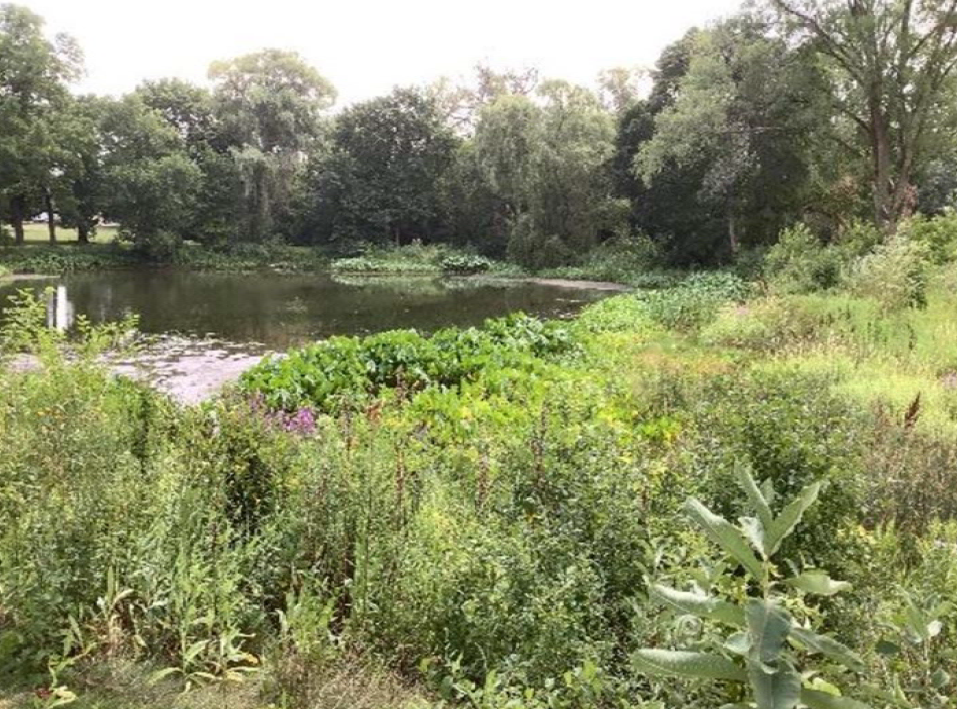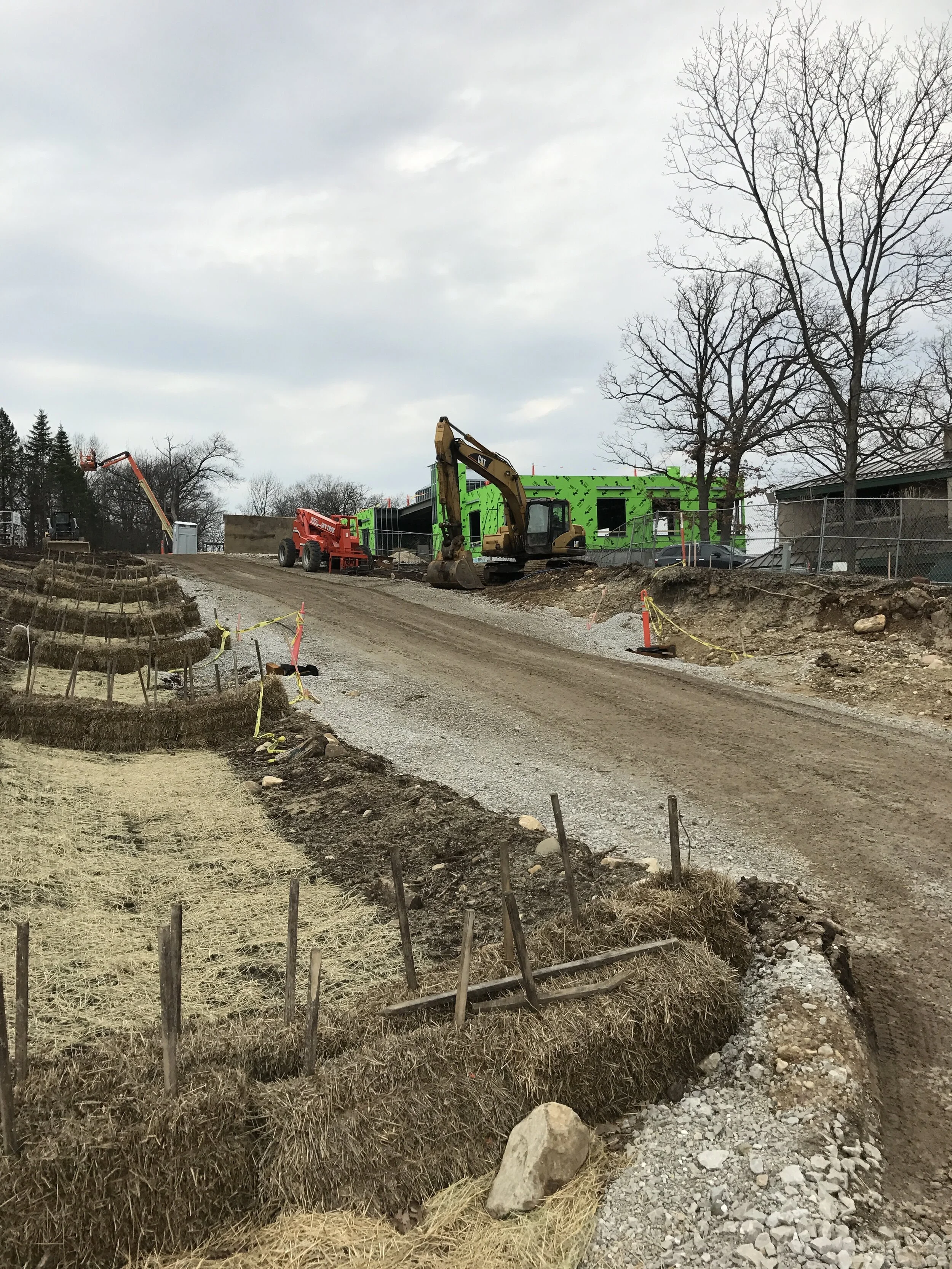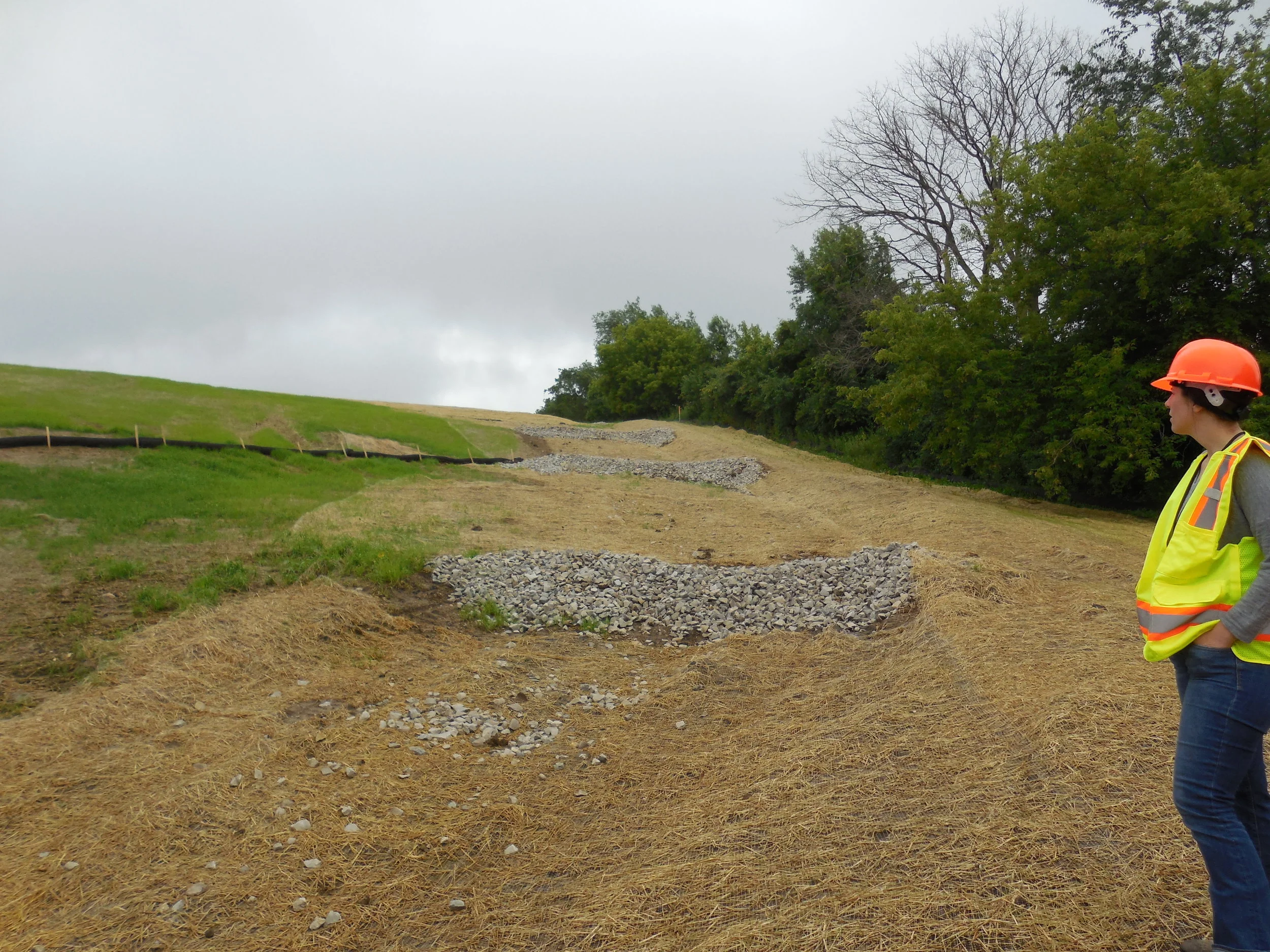Tired of project meetings that leave everyone with more questions than answers? See how drones, scanners, and a touch of AI can turn vague concepts into vivid, shareable visuals that spark better questions, drive smarter decisions, and keep stakeholders engaged.
The Milwaukee Metropolitan Sewerage District (MMSD) recently partnered with District landowners to install green infrastructure devices through the Green Infrastructure Partnership Program. The program was established to help MMSD reach its goal to implement 10 million gallons of green infrastructure annually and achieve TMDL compliance. Learn how R/M helped the District make progress towards those goals through an efficient, streamlined green infrastructure inspection and maintenance program.
Failure to select and install the appropriate BMPs for your construction project will do more than negatively impact the health of our rivers, streams, and lakes. From hefty fines to project delays, here are the consequences developers and municipalities may face for failure to properly implement erosion and sediment control BMPs.
Engineers Week 2020 is almost here, and to celebrate, we’d like to help you get to know a few of our amazing engineers a little better!
Beaver Creek is a tributary to the Milwaukee River running through the heart of the Village of Brown Deer. Recently, the Village partnered with R/M to transform a struggling eight-foot-wide channel of the creek, and its adjacent multi-use pedestrian trail, into a thriving community corridor.
Envision® is a rating system and best practice resource that was developed to help successfully implement sustainability into infrastructure projects. Learn how R/M’s ENV SP certified engineers can help your project succeed.
The state of Wisconsin’s recent record-breaking precipitation has left many communities struggling to repair significant storm damage. Fortunately, there are a variety of grants available to help ease your municipality’s financial burden. As budget season begins, consider these upcoming grant opportunities.
In the right situation, roundabouts can have major advantages over a traditional stop sign or signal-controlled intersection. Keep reading to learn how the use of roundabouts can result in an increase in driver safety, a more efficient traffic flow, a more aesthetically pleasing intersection, lower construction and maintenance costs, and a positive environmental impact.
In order to keep your community’s trees healthy and structurally sound, it’s important to follow proper pruning and planting protocols. Here are a few of our best tips to help you keep your trees thriving all summer long.
When plans to buy, lease, or build expansions come to light, it’s important to spend time up front on environmental due diligence evaluations. If financing is needed, you will almost certainly be required to obtain a Phase I Environmental Site Assessment (Phase I ESA) by your lender. Learn what this is and why it’s important when contemplating your next purchase of a property.
The amount and type of precipitation we experience on a daily or yearly basis can dramatically impact our lives and communities, and the consensus among experts is that the distribution of the world’s rainfall is shifting as our climate changes. Keep reading to learn how your community can prepare for changing precipitation.
Renewable energy initiatives and opportunities are growing in Wisconsin, Illinois, and throughout the Midwest. Municipalities, solar developers, and utility companies are evaluating agricultural lands, under-utilized brownfields, and closed landfills for the potential installation of ground-mounted solar energy projects. Learn how community-scale solar farms may be eligible for construction financing grants.
Ruekert & Mielke, Inc. (R/M) is excited to announce that we’ve recently hired Ginny Plumeau to lead our already robust Environmental Services Team. Plumeau is a Senior Ecologist, Registered Environmental Manager, and a regional leader in ecological services and permitting. Keep reading to learn how our Environmental Services Team can help your community succeed.
Snow plowing and applying road salt was the accepted norm from the mid-20th century until just a decade or so ago. More communities are now using new technologies and methods that are ultimately cheaper, better for the environment, and most importantly provide the level of safety the public expects during winter storm events.
At Ruekert & Mielke, Inc. (R/M), we understand the importance of protecting the environment in which we live, work, and play, and we are always looking for ways to help the communities we serve be more sustainable. As the holidays approach, we’d like to share a few tips on how you can make the season of giving a little more sustainable as well.
MS4 programs include important information required for permit compliance and the evaluation of the effectiveness of the programs over time. As state and federal authorities begin to require more detailed and quantifiable reporting information, it’s increasingly important to utilize reliable and efficient tools like GIS to track and store your MS4 permit data.
Active construction sites continue to be a major source of pollution in our local lakes, streams, and wetlands. Just like training for a new skill or a new piece of equipment, training is needed to show construction site crews how, and when to install and maintain erosion control practices on construction sites.
As the temperatures fall and the leaves do too, the annual leaf collection programs start operating again. Whether it’s a community drop-off location for bagged leaves, municipally operated trucks, vacuums and sweepers to collect the piles along the road, or something in between, the public expects relatively clear roads and storm drains throughout the fall months.
Schoolyards present a unique opportunity for a transformation from grey to green infrastructure as many public schoolyards, especially in larger cities, are covered in asphalt. Green schoolyards can help to foster healthy urban watersheds and wildlife habitats, while improving the health and happiness of students.
Envision® is a rating system and best practice resource that was developed to help successfully implement sustainability into infrastructure projects. It can measure the sustainability of an infrastructure project from design through construction and maintenance for all types and sizes of civil infrastructure.





















